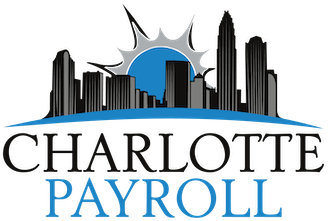The holidays and year-end are a great time to recognize your employees’ hard work and dedication. If your business wants to hand out bonuses as an incentive, you’ll need to consider the following implications.
Definition of a Discretionary Bonus
A discretionary bonus is a one-time or annual payment you give to an employee beyond their salary or hourly rate. As an employer, you can decide who receives a bonus, how much, and the payment date. You can also decide whether to include it on a regular paycheck or whether you want to issue a separate check, however tax withholding differs between the two methods.
Establish clear guidelines if you’re awarding bonuses to some people, but not to others. For instance, you could link bonuses to employee evaluations. Companies may also award bonuses to salespeople and production areas when they meet or exceed expectations.
A business can also give everyone a special holiday bonus to show their appreciation. Holiday bonuses are the only exemption from weekly gross pay overtime calculations.
If you do decide to pay out bonuses, let people know that this is a one-time event based on company finances. Otherwise, people will come to expect the money next year and feel slighted if they don’t get one again.
Definition of a Non-Discretionary Bonus
Non-discretionary bonuses are typically those imposed on your company by contractual commitments. Union contracts, employment contracts, or signing bonuses are examples.
Non-discretionary bonuses are added to the weekly gross pay of hourly employees for overtime purposes and to the pay of exempt employees eligible for overtime. Obviously, this can complicate your payroll process.
For instance, an employee earns $650 as weekly gross pay, including a non-discretionary bonus. The employee worked three hours of overtime during the week too. Their regular hourly wage is $15.11, and the overtime premium is 50%, or $7.56 per hour. Their total pay is $650 plus $22.67 (3 hours of overtime at $7.56) = $672.67.
Bonuses Are Deductible Expenses
Year-end is a good time to access your company’s profitability to discover whether you have extra cash you can pay out in bonuses. They are tax deductible as “payments to employees,” but they also help create a positive work environment and goodwill.
Paying a Bonus to An Employee/Owner
Under certain circumstances, an employee/owner bonus qualifies as a legitimate business expense. For instance, your S Corporation can deduct shareholder and owner bonuses, providing these people own their shares when you pay the bonus. If you run a C Corporation, they’re only a legitimate expense if the shareholder/owner has at least 50 percent ownership when you pay the bonus.
Sole proprietorships, partnerships, and limited liability companies can’t deduct bonuses, since the IRS defines the principles as self-employed.
Tax Withholding
Bonuses are an employee benefit and subject to federal, state income tax, Social Security and Medicare. Include bonuses paid in total income for unemployment taxes, the Social Security maximum, and the additional Medicare tax.
North Carolina law specifies when you pay supplemental wages separately (or combine them with regular wages in a single payment and specify the amount of each) your income tax withholding method also depends on whether you withhold income tax from your employee’s regular wages.
If you withhold income tax from an employee’s regular wages, you can either:
- withhold a flat 5.599%, or
- add the bonus to the regular wages for the for the most recent payroll period this year and treat it as a single payment. Subtract the tax already withheld from the regular wages. Withhold the remaining tax from the supplemental wages.
- If you did not withhold income tax from the employee’s regular wages, use method (b).
Of course, an employee’s tax rate can result in lower or higher taxes. They may ask you to calculate which method benefits them most and you must provide them with an opportunity to change their withholding authorization for the paycheck with the bonus and then change it back later. You must also report all bonuses on Form 941 for your quarterly wage and tax report.
If handling employee bonuses seems like an accounting nightmare, contact us – we’re here to help.






